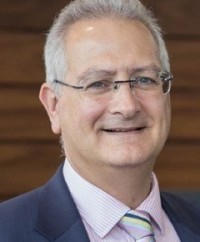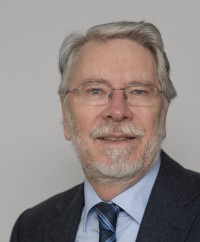AIRTO is delighted to announce the appointment of Steve Yianni FREng as President of AIRTO, succeeding Professor Richard Brook OBE FREng who will remain on the Board and serve as Vice President (Innovation Policy).
Steve, who has served on the AIRTO Board since 2017, and as Vice President since 2019, is a chartered engineer, and a fellow of the Royal Academy of Engineering. He graduated from the University of Cambridge with an Engineering degree, and has an MBA from London Business School. He began his career at the Ford Motor Company, where he worked mainly in Product Development on truck and engine projects. In 1991, he joined JCB, gaining 16 years’ experience in a variety of engineering and leadership roles. In 2008, Steve joined Network Rail and enjoyed five successful years working within the engineering and technical areas of the business, mainly as Director of Engineering. In 2013, he was appointed as Chief Executive of the Transport Systems Catapult; a position held until 2017. From 2020, Steve has also been the Royal Society Entrepreneur in Residence at Cranfield University.
Commenting on his appointment Steve said,
“This is a very exciting time for organisations working in innovation! AIRTO has a unique opportunity to build on the government’s recognition of the importance of innovation as in the Industrial Strategy, especially as the UK seeks to ‘build back better’ in the wake of Covid-19. Innovation has the potential to transform every part of our society and economy. I’m looking forward to working with the AIRTO team and key stakeholders in allied organisations to help shape the policy that will make that happen. I would like to recognise Richard’s immense contribution to AIRTO over many years, and I continue to look forward to working alongside him and the AIRTO team.”
Richard has served as President for many years, succeeding Brian Blunden, AIRTO’s first President in 2004. Prior to that Richard served a period as Chairman. He has seen AIRTO through periods of enormous change in the Innovation, Research & Technology sector and very significant increases in AIRTO’s membership and influence. Steve’s appointment is the culmination of a planned succession and AIRTO is delighted that Richard will be remaining on the AIRTO Board to contribute his expertise and experience, particularly in the area of research and technology commercialisation and early stage finance, taking up the position of Vice-President to work alongside Steve, with a special remit for innovation policy. Reflecting on his time as President, Richard commented,
“It has been a stimulating and exciting role, and I wish Steve every success and look forward working with him as Vice-President to continue championing the UK’s innovation sector.”
AIRTO’s Chair, Dr Paul Howarth FREng (CEO of NNL), commented,
“On behalf of the AIRTO Board and membership I would like to thank Richard for the fantastic contribution he has made to the IRT sector as our President, and we look forward to his continuing involvement as Vice-President. I am delighted that Steve is taking on the role of AIRTO President and look forward to working closely to champion innovation in the UK.”
About AIRTO
AIRTO is the Association of Innovation, Research and Technology Organisations. Its membership comprises approximately sixty of the principal organisations operating in the UK’s Innovation, Research and Technology (IRT) sector. The IRT sector has a combined turnover of £6.9 billion, employing over 57,000 scientific and technical staff (equivalent to the academic staffing of the Russell Group of universities) and, for comparison, it is significantly larger than the network of Fraunhofer Institutes in Germany both in size and its scope of activities. The sector contributes £34 billion to UK GDP.
AIRTO’s members work at the interface between academia and industry, for both private and public sector clients. Members include independent Research and Technology Organisations, Catapult Centres, Public Sector Research Establishments, National Laboratories and some privately held innovation companies.



